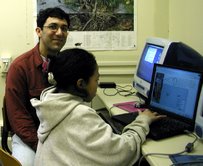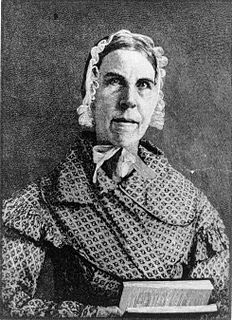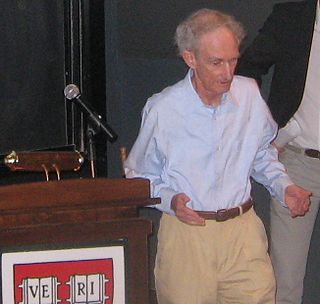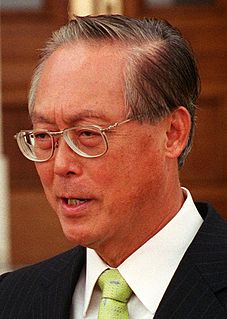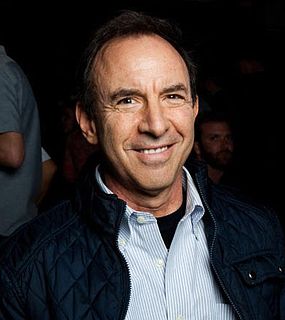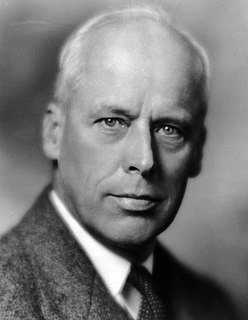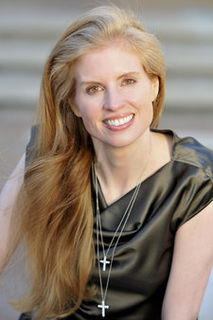Top 1200 Societies Quotes & Sayings - Page 18
Explore popular Societies quotes.
Last updated on December 11, 2024.
I started collecting aerial photographs of Native American and South Pacific architecture; only the African ones were fractal. And if you think about it, all these different societies have different geometric design themes that they use. So Native Americans use a combination of circular symmetry and fourfold symmetry.
So many of the new nations which were established as democracies after the second world war, during the decolonizing process, have now changed their system to state-socialism. Small elites run them, and they aren't sharing societies. They aren't even socialist. The power of the state has been merged with business property and you have the greatest concentration of power that's possible.
I believe that the world will be a safer place if there is enough food to go around, that it will be a more stable place if children grow up with opportunities instead of frustrations. Furthermore, I can only assume that if the United States plays a role in helping to create prosperous societies, we will have friends to call on in times of need.
If you read Herodotus, the first Greek historian 2,500 years ago, he was talking about that - about people mixing with other people. Sometimes it produces great societies. Sometimes it triggers war. But, we're not going to change that. I don't think so. We're living in nations that are state nations and countries.
If the sewing societies, the avails of whose industry are now expended in supporting and educating young men for the ministry, were to withdraw their contributions to these objects, and give them where they are more needed, to their advancement of their own sex in useful learning, the next generation might furnish sufficient proof, that in intelligence and ability to master the whole circle of sciences, woman is not inferior to man.
Marx was wrong: It is not only the 'means of production' that shape societies, but the means of destruction. In our own time, the costs of war, or just war readiness, are daunting. ... The resulting cost squeeze has led to a new type of society, perhaps best terms a 'depleted' state, in which the military has drained reources from all other social functions.
The man who cannot wonder, who does not habitually wonder (and worship), were he President of innumerable Royal Societies, and carried the whole Mecanique Celeste and Hegel's Philosophy, and the epitome of all Laboratories and Observatories with their results, in his single head, is but a Pair of Spectacles behind which there is no Eye. Let those who have Eyes look through him, then he may be useful.
Because the bill vests in the said incorporated church an authority to provide for the support of the poor and the education of poor children of the same, an authority which, being altogether superfluous if the provision is to be the result of pious charity, would be a precedent for giving to religious societies as such a legal agency in carrying into effect a public and civil duty.
In Sarajevo and in Syria, these are societies - in Bosnia, in Serbia, in Kosovo, in Syria - where ethnicities live side by side and intermarry for long periods of time until it becomes valuable to exploit the division. And yes, the division's there because you can always revert back to history, you can always inflame it, but it is manipulated for political ends.
In such systems, there is unquestioning respect for authority. Faith trumps evidence. But if indeed this is broadly the explanation for how co-operative behaviour has evolved and been maintained in human societies, it could be very bad news. Because although such authoritarian systems seem to be good at preserving social coherence and an orderly society, they are, by the same token, not good at adapting to change.
Because we are free we can never be indifferent to the fate of freedom elsewhere. Our moral sense dictates a clearcut preference for these societies which share with us an abiding respect for individual human rights. We do not seek to intimidate, but it is clear that a world which others can dominate with impunity would be inhospitable to decency and a threat to the well-being of all people.
Primitive societies, or social groupings, had shamans, and some of them even more recent in time. Shamans were tricksters. There was a tradition of the trickster, and the trickster was a clown, a humorous fellow. His task was to trick the gods, to humor the gods into laughing, so that there was access to the divine - because laughter is a moment when we are completely ourselves.
A woman caring for her children; a woman striving to excel in the private sector; a woman partnering with her neighbors to make their street safer; a woman running for office to improve her country - they all have something to offer, and the more our societies empower women, the more we receive in return.
We may agree, for example, that our societies must provide greater security for the individual; yet if all we succeed in producing is a providing increased anonymity and ever increasing boredom, then we should not wonder if ingenious man turns to such amusements as drugs, housebreaking, vandalism, mayhem, riots, or - at the most harmless - strange haircuts, costumes, standards of cleanliness, and sexual experiments.
We are opinionated society. We're very happy to spout forth our own views; we're not good about listening. We have to listen to other's stories. Learn to listen to the stories of the terrorists just as we hope that they will listen to ours because very often these narratives express frustrations, fears, and anxieties that most societies can safely ignore.
There's this kind of almost - kind of a weird kind of elitism that says well maybe - maybe certain people in certain parts of the world shouldn't be free; maybe it's best just to let them sit in these tyrannical societies. And our foreign policy rejects that concept. And we don't accept it. And so we're working.
Throughout our world the cry of the poor so often goes unheard. The prophets harangued Israel and Judah unceasingly about the powerless and marginalized, the overlooked widows, orphans, and "sojourners in our midst," who are still with us today as single mothers, hungry children, and helpless immigrants, wraiths invisible in our prosperous societies.
There are many people of cosmopolitan temperament who are not from the elites of their societies or the world; and while, for a variety of reasons, I think a cosmopolitan spirit does naturally go with city life, that's the life of a very large proportion of human beings today. And I don't think rural people can't be cosmopolitan, in my sense.
I don't think I underestimated [Vladimir Putin], but I think that I underestimated the degree to which, in this new information age, it is possible for misinformation for cyber hacking and so forth to have an impact on our open societies, our open systems, to insinuate themselves into our democratic practices in ways that I think are accelerating.
A combination of very rapid population growth over the last 50 years and reckless economic growth during the same time has stored up massive problems for societies the world over. No nation is immune. The scientific evidence tells us all we need to know: carry on with business-as-usual growth-at-all-costs, and we're stuffed
There must be renewed recognition that societies are kept stable and healthy by reform, not by thought police; this means there must be free play for so-called subversive ideas - every idea subverts the old to make way for the new. To shut off subversion is to shut off peaceful progress and to invite revolution and war.
Individual societies begin in harmonious adaptation to the environment and, like individuals, quickly get trapped into nonadaptive, artificial, repetitive sequences. When the individual's behavior and consciousness get hooked to a routine sequence of external actions, he is a dead robot, and it is time for him to die and be reborn. Time to "drop out," "turn on," and "tune in.
For Singapore, its test for its own democracy must be whether it fit and serve the interests of its people and conditions, and not serve some abstract ideal that the Western media thought it ought to conform to. If in 10 years, Philippines, Taiwan and Korea were better societies because they adopted the US model, Singapore would hurry to catch.
Today many politicians suggest that where the federal government does not act, there must be anarchy. That view is odd, blinkering out the work of state and towns, which until recently did much of our charitable and cultural work. That view also blinkers out the role of mutual societies and churches.
It would have been very alarming - morally, and in other ways too - if an attack of that nature, the 11 September attacks, had not aroused in us and in our governments and societies the spirit of self-defence. If that had not been one of the responses it seems to me there would have been very grave cause for concern.
To prepare youth for success in entrepreneurial (and free) cultures, education tends to emphasize originality, creativity, breadth, depth and leadership skills rather than rote memorization, standardized curricula or socialization. The latter skill set is vital in societies with strong upper classes employing the lower castes, but the former is essential to free democratic nations.
I am a humanist because I think humanity can, with constant moral guidance, create reasonably decent societies. I think that young people who want to understand the world can profit from the works of Plato and Socrates, the behaviour of the three Thomases, Aquinas, More and Jefferson - the austere analyses of Immanuel Kant and the political leadership of Abraham Lincoln and Franklin Roosevelt.
However much we talk of the inexorable laws governing the life of individuals and of societies, we remain at the bottom convinced that in human affairs everything in more or less fortuitous. We do not even believe in the inevitability of our own death. Hence the difficulty of deciphering the present, of detecting the seeds of things to come as they germinate before our eyes. We are not attuned to seeing the inevitable.
The first life insurance societies where formed in England in the years between 1692 and 1720. In America, life insurance became available to the clergy through the Presbyterian Ministers Fund, founded in 1759 (still in existence), and the Episcopal Corporation, founded ten years later (subsequently merged).
Two types of choices seem to me to have been crucial in tipping the outcomes [of the various societies' histories] towards success or failure: long-term planning and willingness to reconsider core values. On reflection we can also recognize the crucial role of these same two choices for the outcomes of our individual lives.
Without the heart to ground it and open it to who we really can be as human beings, the brain is a very dangerous machine. A machine that is saying: we've got to have economic growth; we've got to have unending economic growth, otherwise societies will collapse. And yet there should be something saying: wait a minute, this isn't going to work.
We live in a world of absolute immediacy. It is an interconnected, combustible world, where technology and many other actions have given nonstate actors a reach, into countries and societies, for both good and evil, that we have never seen before. So it isn't a matter of just state versus state challenges or conflict. The bigger problem is nonstate actors.
There will be, in the next generation or so, a pharmacological method of making people love their servitude, and producing dictatorship without tears, so to speak, producing a kind of painless concentration camp for entire societies, so that people will in fact have their liberties taken away from them, but will rather enjoy it.
In societies that worship money and success, the losers become objects of scorn. Those who work the hardest for the least are called lazy. Those forced to live in substandard housing are thought to be the authors of substandard lives. Those who do not finish high school or cannot afford to go to college are considered deficient or inept.
Armed with all the powers, enjoying all the wealth they owe to science, our societies are still trying to practice and to teach systems of values already destroyed at the roots by that very science. Man knows at last that he is alone in the indifferent immensity of the universe, whence which he has emerged by chance. His duty, like his fate, is written nowhere.
As Muslims, we are all equals, we abide by the laws and we understand that we have to be active citizens wherever we are. Our goals are first to live by our principles, to remind people of these values, to reconcile our respective societies with these shared universal values and to try our best to push for a spiritual agenda with more ethics in society, in politics, in economics, and in culture.
The supposed great misery of our century is the lack of time; our sense of that, not a disinterested love of science, and certainly not wisdom, is why we devote such a huge proportion of the ingenuity and income of our societies to finding faster ways of doing things - as if the final aim of mankind was to grow closer not to a perfect humanity, but to a perfect lightning-flash.
[Muslims] who are here and who are behaving according to our laws and our constitutions are happy to stay, are equal to anybody else, or even want to help them with the better education, but if they cross the line of crime, start acting according to Sharia law, there will be no place for them in our free societies.
There are some plain common-sense considerations applicable to all these attempts at world planning. They can be briefly stated: 1. To talk of blueprints for the future or building a world order is, if properly understood, suggestive, but it is also dangerous. Societies grow far more truly than they are built. A constitution for a new world order is never like a blueprint for a skyscraper.
A large percentage of those living in developed societies are told what brand of soda they should drink, what cigarettes they should smoke, what clothes and shoes they should wear, what they should eat and what brand of food they should buy. Their political ideas are supplied in the same way. Every year a trillion dollars is spent on advertising.
Religion is a complex and often contradictory force in our world. It fosters hope and comfort but also doubt and guilt. It creates both community and exclusion. It brings societies together around shared belief and tears them apart through war. However, what unites the faithful, whatever their religion, is the unshakeable force of generosity.
A culture that gave the world the spiritual creations of the Classical Music of Mozart, Beethoven, Wagner and Schubert, the paintings of Michelangelo, and Raphael, Da Vinci and Rembrandt, does not need lessons from societies whose idea of spirituality is a heaven peopled with female virgins for the use of men, whose idea of heaven resembles a cosmic brothel.
The diagnosis that poverty, lack of education, or lack of opportunities have much to do with terrorism requires a fundamentally optimistic view of human nature. This diagnosis leads to the prognosis that all we need to do to solve the terrorism problem is to create societies that are less poor, better educated and have more opportunities.
Desktop publishing was a big innovation that meant small groups or even poor societies could do their own publication without the capital investment in a major printing press. That's a big difference. Same is true of more advanced technologies - it can offer plenty of liberatory possibilities - can - but whether it does or not or whether it serves for coercion depends on socioeconomic decisions.
As to the origin of civil Societies or Governments; the Author of our Being, has given Man a Nature to be fitted for, and disposed to Society. It was not good for Man at first to be alone; his nature is social, having various Affections, Propensities and Passions, which respect Society, and cannot be indulged without a social Intercourse.


